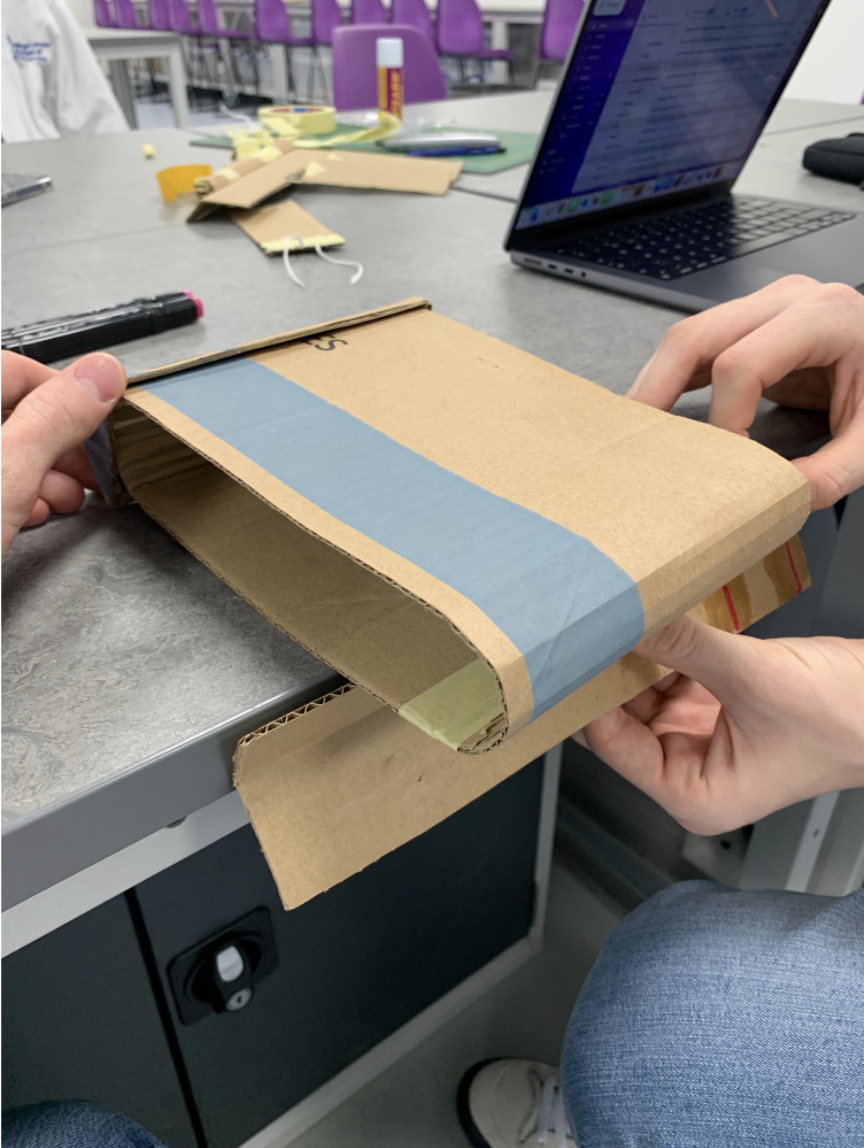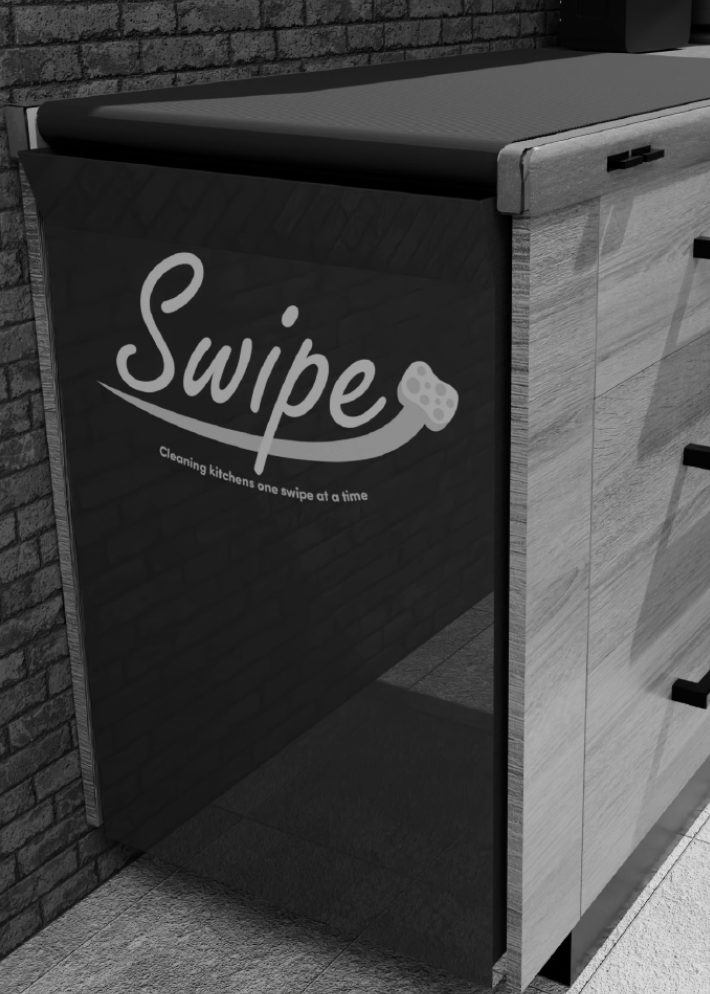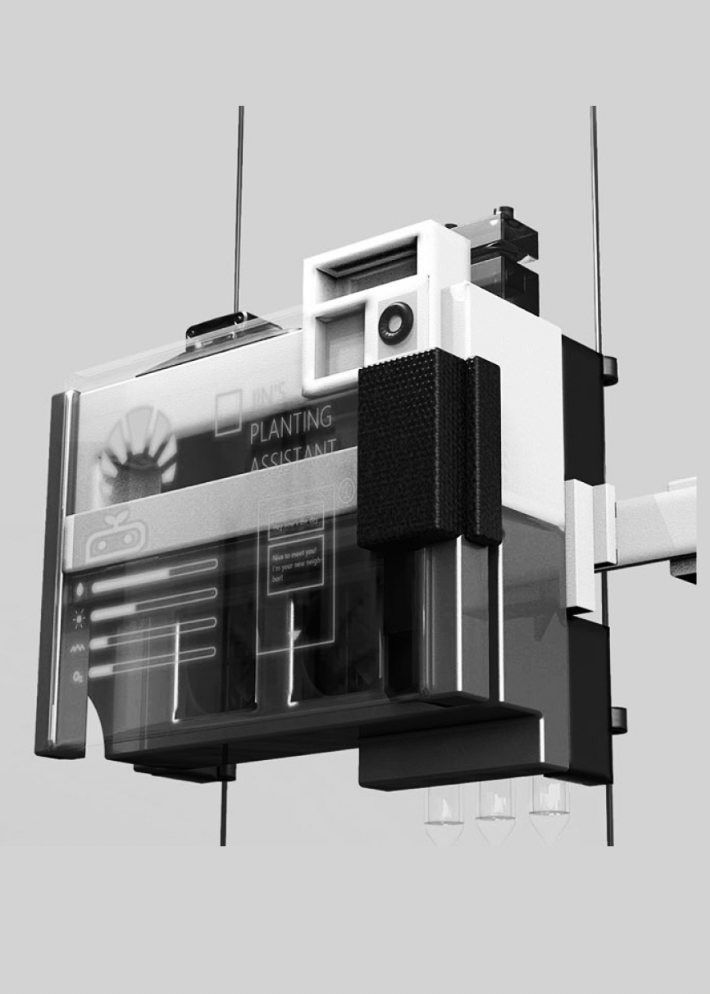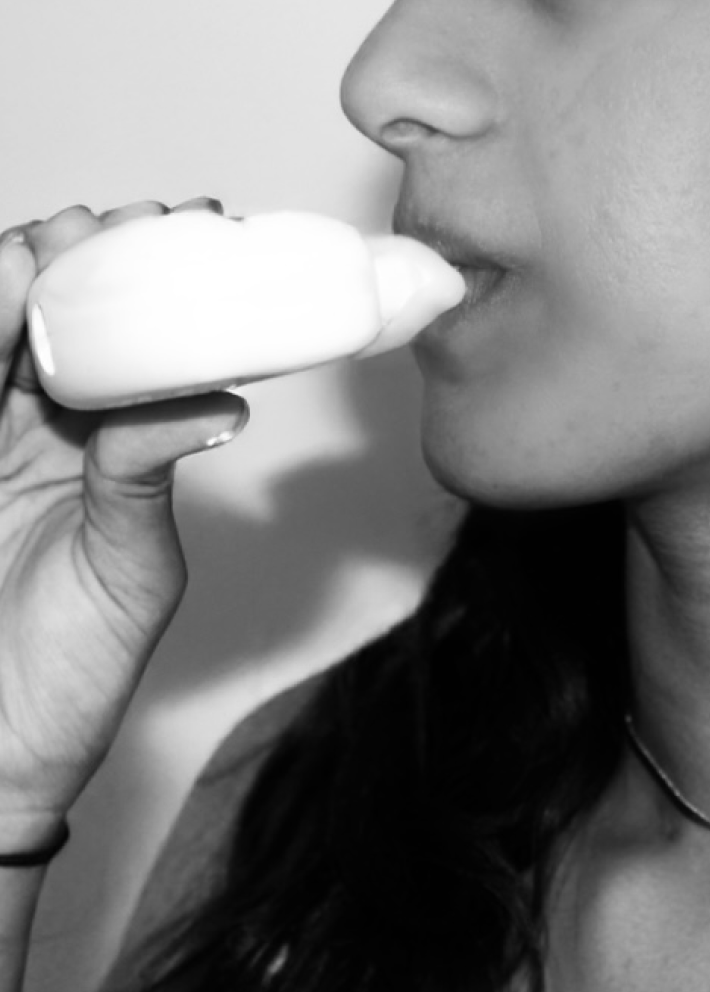Tackling Social Friction in Student Living
In shared student accommodations, dirty kitchens are more than a nuisance, they lead to poor diets, reduced wellbeing, and fewer students cooking for themselves. Swipe is a self-cleaning countertop designed to tackle this daily challenge. Developed with hall staff and students, it helps maintain hygiene, promote healthier habits, and reduce cleaning burdens.
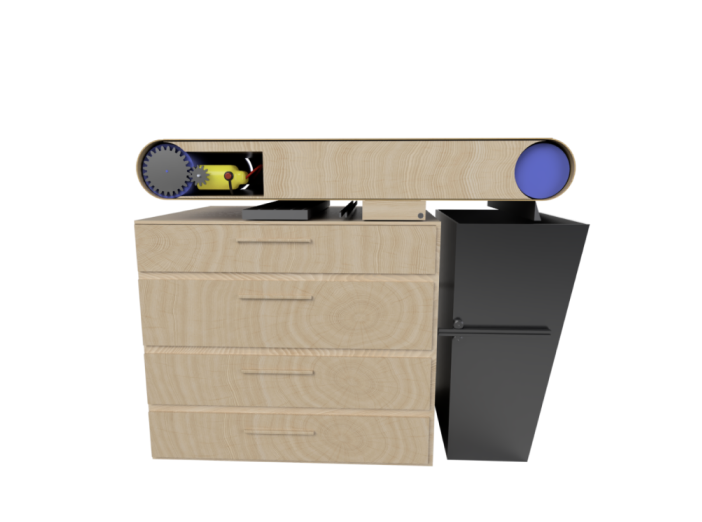
The Challenge
Poor Hygiene Standards
Over 75% of students in shared kitchens reported serious hygiene issues, including unwashed surfaces and food waste left behind.
Social Friction
Lack of cleaning leads to tension between flatmates, as responsibilities are unclear and mess accumulates quickly.
Cleaning Effort
Many students stop cooking entirely because the mess is too overwhelming or they don’t trust the shared surfaces.
Our Solution: Swipe
Swipe is a rotating, self-cleaning kitchen module designed to enhance hygiene and simplify cleaning in shared student kitchens. By automating surface renewal and making cleanliness effortless, it fosters a collective sense of care and responsibility.
Rotating Mechanism
The countertop rotates to reveal a clean surface segment after each use, ensuring consistent cleanliness throughout the day.
Automated Cleaning
A built-in squeegee and drying system clean each segment during rotation, minimising manual effort.
Shared Responsibility
Design encourages collective ownership and reduces individual cleaning burden.
Improved Confidence
Students are more likely to cook in a kitchen they trust to be clean, leading to healthier habits and stronger community bonds.
Key Benefits
- Reduced cleaning effort
- Less social friction
- Improved hygiene standards
- Increased cooking confidence
- Shared responsibility model
- Sustainable solution
Design Process
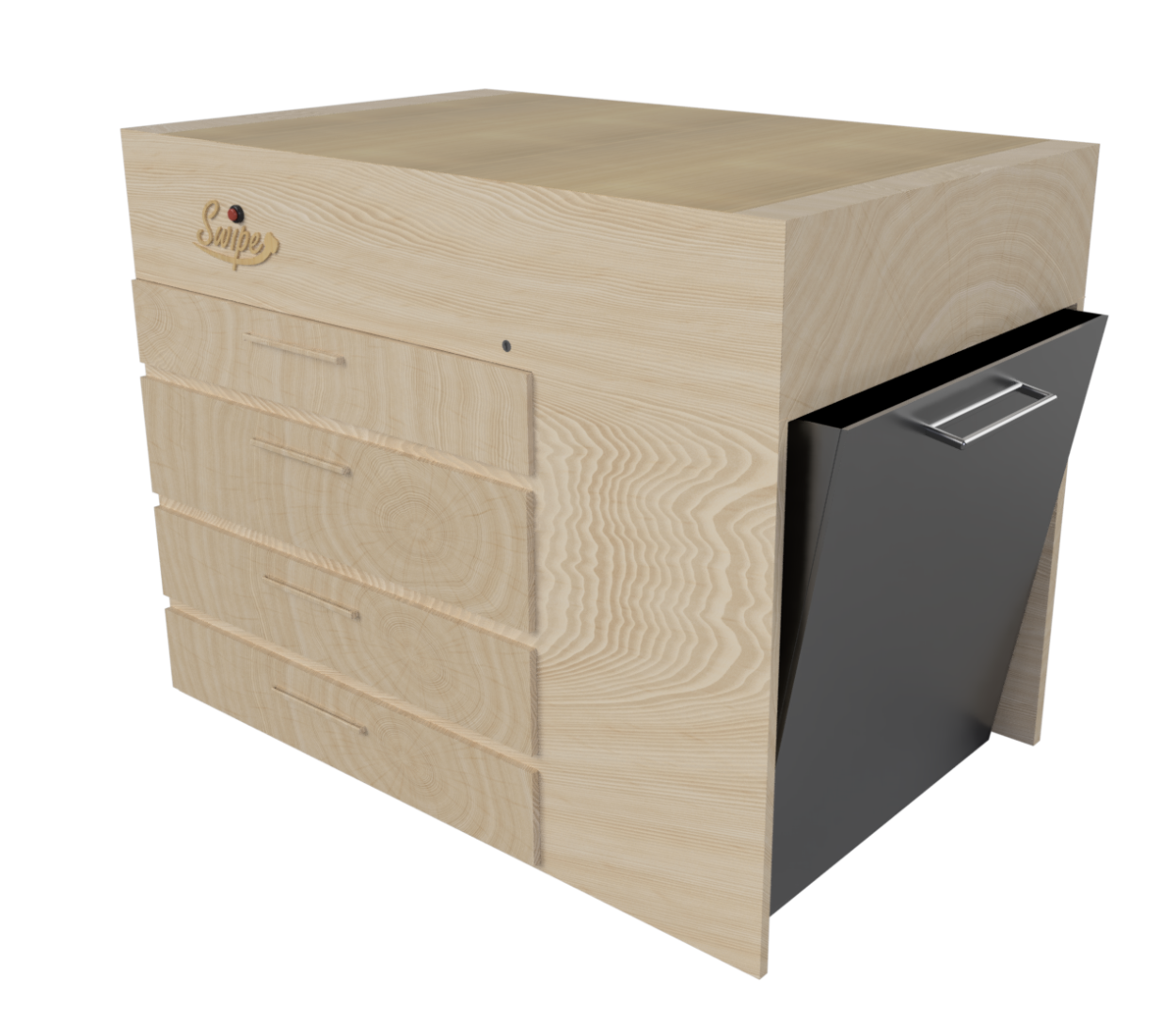
User Research
In-depth field studies, interviews with hall staff, and surveys to understand the root causes of kitchen hygiene issues.
Problem Definition
Identifying key pain points and defining design challenges based on user insights and behavioral patterns.
Rapid Prototyping
Lo-fi and hi-fi prototyping with electronics testing to validate core functionality and user interaction.
User Validation
Real-world user trials and iterative testing to refine the design and ensure practical effectiveness.
Project Demonstration
Swipe in Action
See how the rotating countertop system works in practice and discover the user research insights that shaped our design decisions.
Impact & Reflection
This journey led us to design a desirable product that addresses an overlooked but pressing issue in student life, demonstrating the power of human-centered design to solve everyday problems.
Deep User Understanding
Comprehensive research revealed the social and behavioral aspects behind kitchen hygiene issues
Practical Innovation
Successfully integrated mechanical and electronic systems in a user-friendly design
Social Impact
Addressed micro-conflicts in shared living spaces through thoughtful design intervention
"Swipe is more than a cleaning tool; it represents a vision of design as a driver of everyday change, tackling micro-conflicts in shared living environments and reinforcing my commitment to practical, empathetic, and impact-oriented design."
